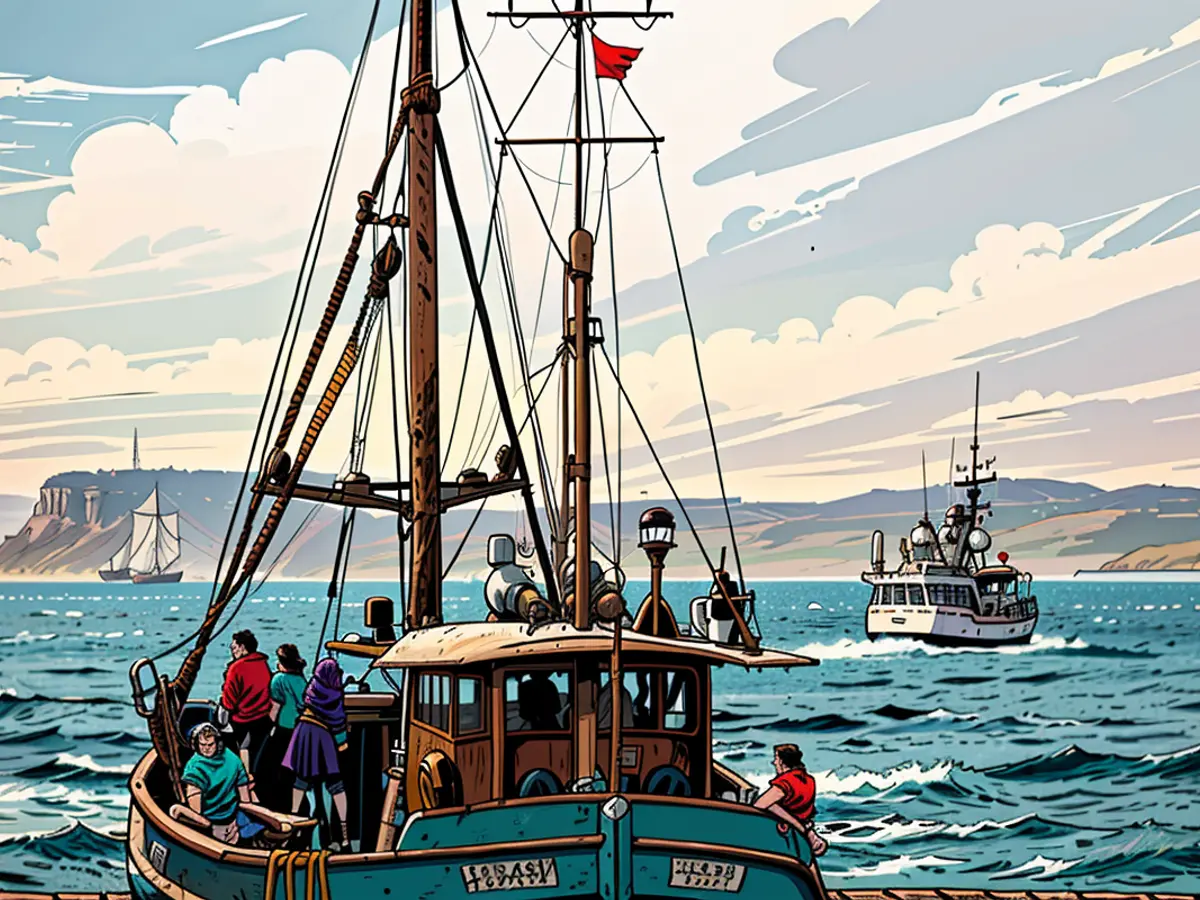- Fishermen express concern: Wind turbines diminish available fishing zones
Before the German Fisheries Congress in Hamburg, there's been significant dissatisfaction within the industry. "Politics is pushing coastal fishermen towards the edge," stated Dirk Sander, vice-president of the German Fisheries Association (DFV). Fishermen are gradually losing their fishing grounds due to the construction of offshore wind farms, as per Sander.
Industry representatives also voiced concerns over decreased subsidies and constraints on aquaculture, the controlled breeding of aquatic organisms.
The German Fisheries Congress serves as the annual gathering of the industry. As per association declarations, it's being held in Hamburg for the first time since 1951. The event concludes on Thursday. The association comprises up to one million organized fishermen and anglers. It encompasses four sector associations.
Fishermen seek shared spaces
Gero Hocker, the association president, noted that the expansion of offshore wind energy is still in its infancy. While these projects are beneficial, "we need to find a way to enable fishing in the future," he stated. This is a political responsibility, said Hocker, who is also a member of the Bundestag for the FDP. The DFV advocates for the multi-use of wind farm areas, which should also be accessible for fishing.
The Thünen Institute for Sea Fisheries in Bremerhaven revealed that 907.5 square kilometers of wind farms have been constructed and are being constructed in the German exclusive economic zone of the North Sea. By 2034, this area is projected to triple. By then, this area will account for approximately 9.6 percent of the German exclusive economic zone in the North Sea.
Reduced subsidies
Initial plans stipulated that five percent of the earnings from the auction of areas for offshore wind power should be allocated to the fisheries as structural aid. As per the DFV, this money has been reduced from 670 million euros to around 134 million euros. The remaining funds have been designated elsewhere, leaving 109 million euros. The association doubts whether all the money will directly reach the fishermen, it stated. "We feel completely neglected by the German government," said Sander, referring to coastal fishing.
The Federal Ministry of Agriculture and Food responded to an inquiry by stating that Federal Chancellor Olaf Scholz (SPD) coordinated with Economics Minister Robert Habeck (Greens) and Finance Minister Christian Lindner (FDP) to use the funds from the auction "broadly". The Bundestag then decided that less money was available to the ministry as the so-called fisheries component. The use of the funds is currently under review. A minor subsidy for increased operating costs of fishermen has already been enhanced.
Aquaculture is stagnating
Besides areas and subsidies, the fisheries are grappling with regulatory hurdles such as water, nature conservation, and fish disease law, and bureaucracy, which are hindering aquaculture. The potential for mussel production in Schleswig-Holstein cannot be fully exploited. The stock is also threatened due to the presence of fish-consuming animals like cormorants, otters, and beavers, which cannot be deterred. In the south, otters pose a significant problem, mentioned Bernhard Feneis, president of the Association of German Inland Fisheries and Aquaculture. "There's nothing else we can do but remove the otter."
Aquaculture encompasses the farming of species such as trout, carp, and mussels. As per the latest report by the United Nations Food and Agriculture Organization, global aquaculture production has surpassed that of fisheries. However, Germany's aquaculture sector has not kept pace with this trend.
Last year, as per Germany's Federal Statistical Office, domestic aquaculture operations yielded around 35,200 tonnes, including algae. This figure is still below the approximately 39,200 tonnes produced in 2011. The leading regions are Schleswig-Holstein, Bavaria, and Lower Saxony.
Production above last year's level
As per the Federal Ministry of Food and Agriculture, Germany's fisheries production was provisionally around 194,700 tonnes last year, reflecting a rise of about three percent compared to the previous year. The highest catch is exported abroad.
The future of fishing in the face of expanding offshore wind energy is a concern for the German Fisheries Association. Gero Hocker, the association president, emphasized the need to find a way for fishing to coexist with wind farms in the future.
Despite the projected increase in wind farm construction, the German Fisheries Association advocates for the multi-use of these areas to ensure fishing can continue in the future.








